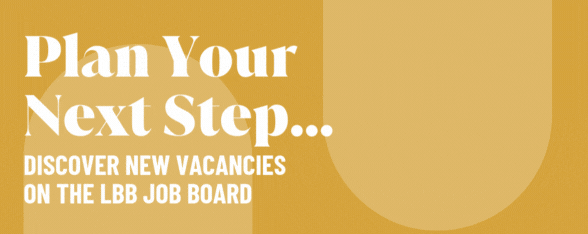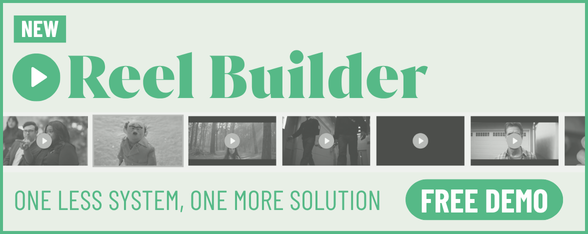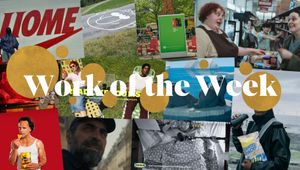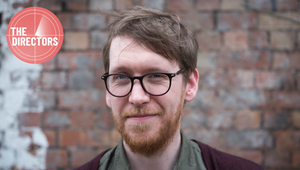
Joe Bell Looks Back on His Producing Masterclass

Joe Bell is a senior producer who works across a range of projects for Aardman. These include the Emmy-nominated ‘The Grand Getaway’ – Wallace & Gromit’s first ever 'VR-O-Rama' adventure, released on Meta Quest in 2023.
Previously he produced a number of award-winning experiences for the BBC and worked as ‘Sideburn Panda’, offering digital consultancy and production services to a wide variety of clients in the arts and heritage sector.
LBB> What first attracted you to production – and has it been an industry you’ve always worked in or did you come to it from another area?
Joe> I think I’ve always been fascinated by the process of making things. That and the way a truly great piece of creative work can impact other human beings. The potential of working to create something that otherwise wouldn’t exist, and to have the chance to impact others the way my favourite pieces of media have impacted me, has always been hugely appealing.
As soon as I realised that it was a possible career, production was something I aspired to work in. Particularly when I saw there was a useful professional path in that field for people like me that are natural organisers and worriers but don’t necessarily have a strong set of hands-on artistic skills!
LBB> What was your first role in the production world and how did this experience influence how you think about production and how you grew your career?
Joe> Having spent a lot of time in student radio at university, my first role in the production world was audio engineering work at a London agency. That role started to involve more overarching production planning, ideation and client interaction, and gave me a real insight into the number of moving parts required to get things made.
From there I joined the BBC as a researcher, very specifically on the editorial side of creative production. There I worked with and for many great producers and creatives and got a masterclass in seeing how creative aspirations meet practical requirements as ideas get shepherded from concept to reality.
That early experience made me realise just how many elements need to come together in a successful production, and the value of managing and collaborating with people to make that happen.
LBB> How did you learn to be a producer?
Joe> Whilst there have been bits of training along the way – often around the project management side of the process – fundamentally so much of it was ‘on the job’ and project by project.
A large aspect of producing is about ongoing problem solving and being the one to deal with the shifting sands of a complex and very human-driven process. It’s only by having to do it over and over in different settings and for different kinds of productions, that you build that resilience and self-belief in your ability to deal with the kinds of things that productions can throw at you.
Of course, it’s good to then have that experience to draw on should similar things come up again, but I’m not sure you ever finish that process of learning. Particularly as production techniques, formats and platforms continue to evolve at a rapid pace. You just have to stay curious and interested in people and processes, and trust in your ability (and those of your network) to be able to navigate different situations.
LBB> Looking back to the beginning of your career, can you tell us about a production you were involved in where you really had to dig deep and that really helped you to grow as a producer?
Joe> The project that comes to mind was a digital project for BBC iWonder – working with a BBC Three drama called ‘Our World War’ to create an interactive TV episode back in 2014.
It was one of my first projects as an assistant producer and as a small production team we were really thrown into the thick of it. It was hugely ambitious, but with tight timelines and budgets and the need to use a lot of new techniques. A huge amount had to be worked out as we went.
You always expect challenges on bigger productions, but every day it felt like we had to engage with something new and do a lot of hands-on work to solve problems and plug gaps. At various points I ended up doing audio design work, script continuity on shoots as well as the usual tasks of supporting the producer.
It was a masterclass in how important that producer role is in keeping the show on the road – whether that be my pulling in and managing people well or, where appropriate, getting stuck in and doing things yourself to support the wider team and production.
LBB> A good producer should be able to produce for any medium, from film to events to digital experience. Do you agree or disagree with this statement? Why/why not?
Joe> Completely agree – whilst specialisms and experience all help, I’d argue the fundamentals of producing are agnostic to the medium. It’s about understanding a brief, managing resources and leaning into your network to find the right people to support you on that. Often it’s about navigating and managing uncertainty – including knowing what you don’t know and plugging those gaps accordingly.
I’d like to think that once you’ve got a few productions under your belt and a network of collaborators you can draw on, you’re well placed to tackle any creative and technical challenge.
LBB> What’s your favourite thing about production and why?
Joe> It sounds trite, but it really is about working to pull in and support great people to take an idea from something that sometimes starts from as little as a line on a post-it note through to a fully finished thing that an audience is getting to experience.
The little victories along the way – winning support for an idea, getting funding and a green light, getting a great team member on board, solving a knotty legal issue or a production challenge, etc., really sustain you over what can be a very intense process.
There’s a nice element of quietly helping other people to do their best work whilst you battle to make sure that can happen. When you get out the other side and look back on all the obstacles the project and team have overcome to get a thing made, it’s a special feeling.
LBB> How has production changed since you started your career?
Joe> Just getting stuff made at all has got harder – with pressure on budgets and lots of new stresses on the business side of delivering creative projects.
In terms of process too, things like remote working, new tools and a blending of project management techniques and ideas from different industries and mediums have all contributed to a shift from where it felt like things were when I started.
LBB> And what has stayed the same?
Joe> I think it’s the skills and mindset of being an effective producer. Staying curious, staying organised and channeling that energy into getting things made.
LBB> What do you think is the key to being an effective producer - and is it something that’s innate or something that can be learned?
Joe> There are different kinds of producers out there, but the most effective ones I’ve worked with and learned from – and how I try to be myself – is to be a steady hand on the tiller keeping things moving. Planning, managing and worrying so others don’t have to. I sometimes joke that I’ve just professionalised my neuroses…
I think you can learn aspects of the role and related skills, but I do think you need to be the kind of person that instinctively plans ahead. One that is happy with task switching regularly and can act as the right kind of conduit between different people and parts of a process.
LBB> Which production project from across your career are you most proud of and why?
Joe> Probably ‘Wallace & Gromit in The Grand Getaway’ – a VR adventure featuring the iconic duo.
The Wallace & Gromit shorts were one of those things that I loved as a child, so to get to work on something with those characters and that talent was an absolute dream come true. It was a hugely complicated project to deliver but knowing how the whole team navigated that, and seeing the real moments of magic in the end result, is such a point of pride.
LBB> And in terms of recent work, which projects have you found to be particularly exciting or have presented particularly interesting production challenges?
Joe> My most recent project has been a commercial for Thatcher’s ‘Juicy Apple’. That has been a fun one, though challenging as we had a fairly tight turnaround to get it made.
Our director – Dan Binns – created the most beautiful illustrations that formed the basis of the creative treatment. Trying to combine techniques – hand drawn animation, After Effects, 2D and 3D CG assets to create a satisfying visual journey through the world of the product in just 30 seconds was a fun but invigorating challenge.
LBB> Producers always have the best stories. What’s the hairiest / most insane situation you’ve found yourself in and how did you work your way out of it?
Joe> I’m an experienced enough producer to know not to go there without an NDA...
LBB> What are your personal ambitions or aspirations as a producer?
Joe> Really it is to just keep creating. At Aardman, we’re in a really exciting position - working with our own brands and in partnership with other companies and IP to tell wonderful creative stories in unique and exciting ways. That’s all I’ve ever wanted to do and keep doing…
LBB> As a producer your brain must have a neverending "to do" list. How do you switch off? What do you do to relax?
Joe> I’m not sure I ever entirely do – I find managing internal ‘to do’ lists weirdly invigorating…
That said, of course there are times I need some kind of escape. I love things like reading or board games. Activities that get me away from the screen or are removed from the creative work I do day to day. Occupying enough of the brain that would otherwise be scenario planning about the next set of things that need to happen or that could go wrong…
LBB> Producers are problem solvers. What personally fuels your curiosity and drive?
Joe> Being generous, I think I just find a lot of things fascinating, with a bit of a ‘teacher’s pet’ streak that means I want to try and understand lots of different things. That process alone is really energising, but when you’re also then able to turn that into making something that wouldn’t have happened without you – overcoming a problem, supporting others to do great work. It’s a real motivator.
LBB> What advice would you give to people who are interested in becoming a producer?
Joe> Be curious – try and understand all the roles and processes by which things are made.
LBB> From your experience what are the ingredients for a successful production?
Joe> It’s really all about the people. It’s about finding and supporting the right group of people and working within the particular constraints you have to make things happen.
LBB> What’s the key to a successful production-client relationship?
Joe> Honest and open communication and a sense of true collaboration. The nature of pitching can often set up a more hierarchical dynamic to begin with, but once you’re under way, the more you’re able to pivot and embrace the partnership, the better.
Trusting each other as experts in the worlds you know and the work you do – both coming together to create something special.
















